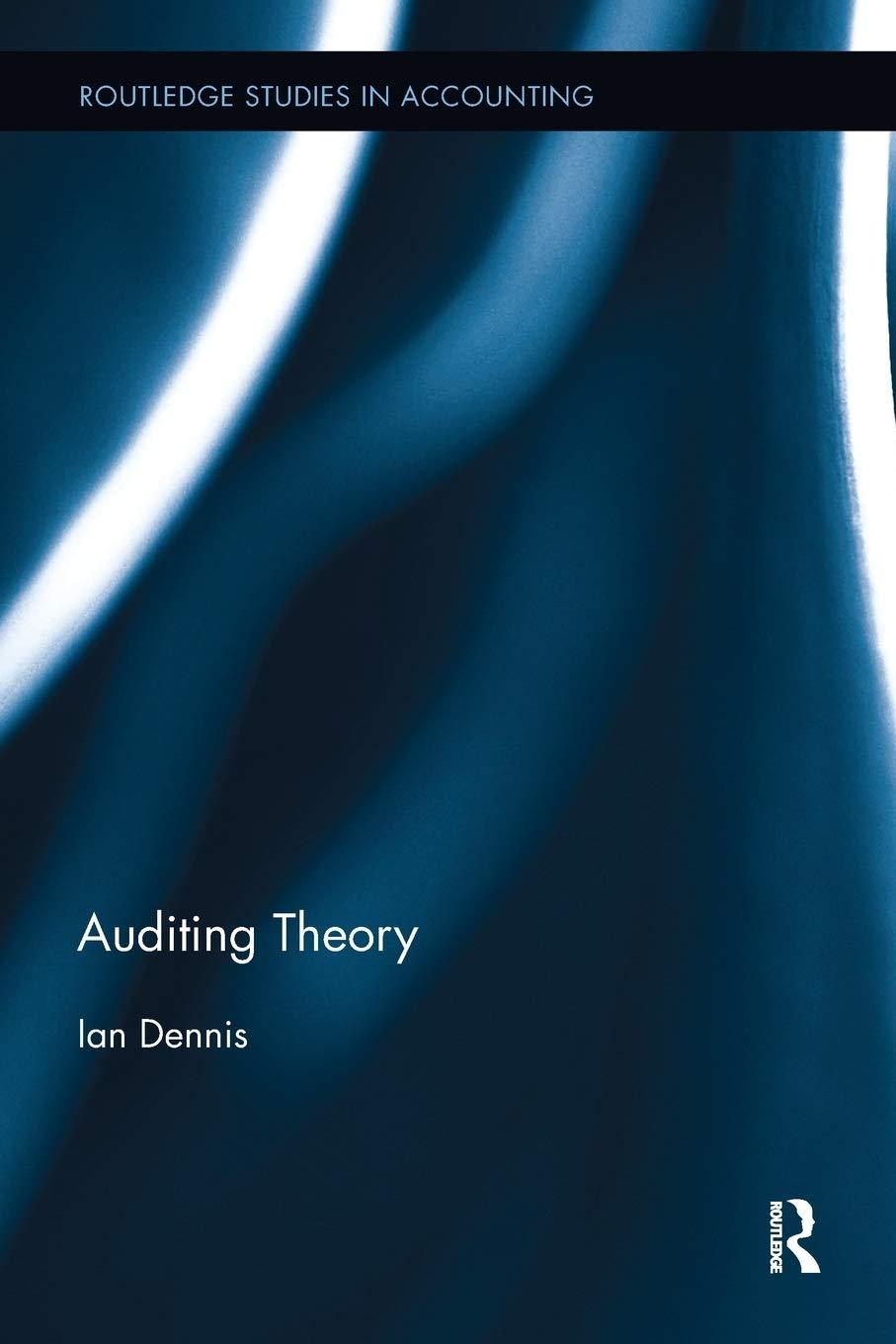Question
Willis Company has been in operation for three years. The company produces and sells a single product. Willis uses a standard costing system. Willis Company
Willis Company has been in operation for three years. The company produces and sells a single product. Willis uses a standard costing system.
Willis Company has the following absorption costing income statements for its first three years of operation.
2016 2017 2018
Sales in units 40,000 40,000 50,000
Production in units 40,000 50,000 40,000
Revenues $2,100,000 $2,100,000 $2,625,000
Cost of goods sold
Beginning inventory 0 0 $475,000
Production $1,900,000 $2,375,000 $1,900,000
Available for sale $1,900,000 $2,375,000 $2,375,000
Less: Ending inventory 0 $475,000 0
Less: Production volume variance $250,000
Cost of goods sold $1,900,000 $1,650,000 $2,375,000
Gross margin $200,000 $450,000 $250,000
Selling and Administrative costs (all fixed) $200,000 $200,000 $200,000
Operating Income $0 $250,000 $50,000
Fixed manufacturing overhead costs per year $1,000,000 $1,000,000 $1,000,000
Denominator level of activity used 40,000 units 40,000 units 40,000 units
Angela Lyman, a dress designer with no accounting background, was told that the breakeven volume for her company is 40,000 units per year. She is somewhat confused with the results shown above. In 2016 when 40,000 units were sold the company broke even (zero operating income). In 2017 when 40,000 units were sold the company had a profit of $250,000. Then in 2018 when 50,000 units were sold the profit was lower than the 2017 results. With the increase in sales, she thought her profit would be larger than it was in 2017.
The selling price per unit remained the same over the three year period as did all the fixed (in total) and variable (per unit) costs.
1. Calculate the break-even point based on the information provided. Show how you calculated the Selling price per unit, the variable cost per unit and the contribution margin per unit.
2. Prepare a variable costing income statement for each of the three years.
3. Reconcile the differences in the operating incomes under variable costing and absorption costing.
4. Explain to Angela why there is a difference between variable and absorption operating incomes in the 2017 and 2018.
Step by Step Solution
There are 3 Steps involved in it
Step: 1

Get Instant Access to Expert-Tailored Solutions
See step-by-step solutions with expert insights and AI powered tools for academic success
Step: 2

Step: 3

Ace Your Homework with AI
Get the answers you need in no time with our AI-driven, step-by-step assistance
Get Started


